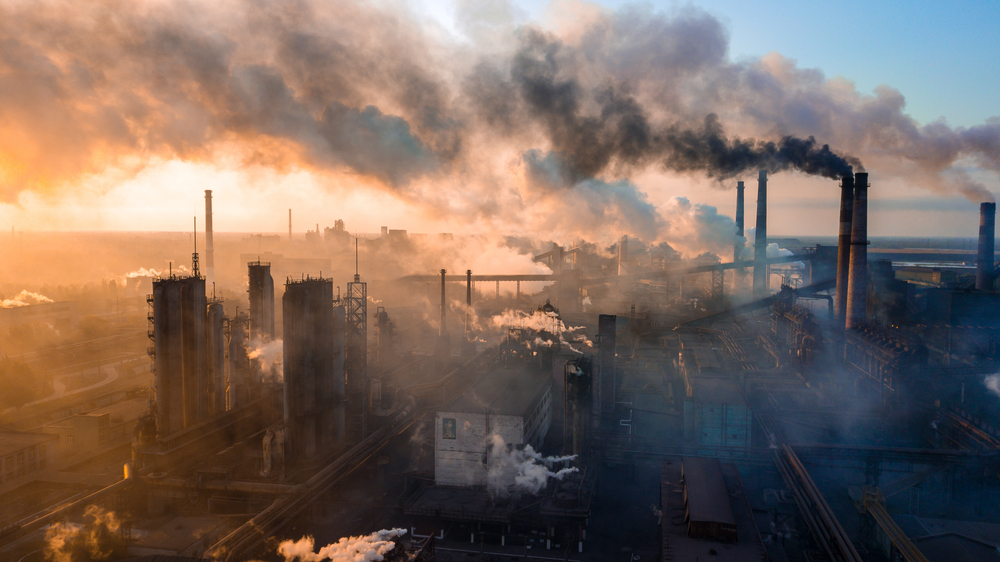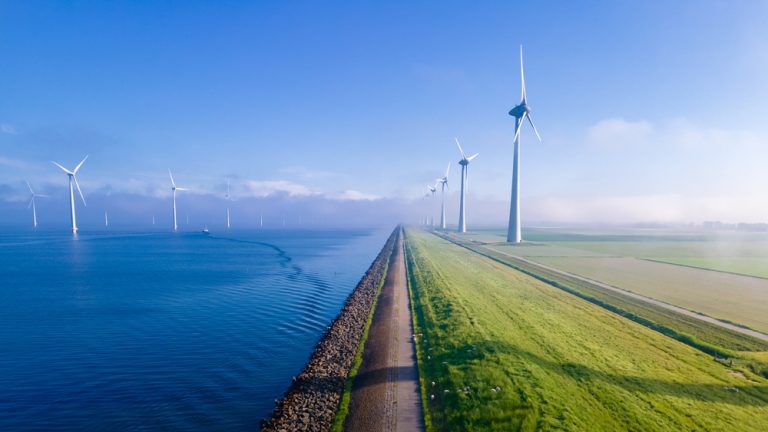
Britain looks for a way out of the energy crisis and hides “green energy” far away in a safe
Earlier in previous articles, in the context of the energy crisis, we wrote about how European governments sharply and cynically began to abandon the “green energy” project, which they had been holding on as a favorite toy for many years, and began to forcefully return to traditional energy sources, which they themselves had previously considered as “dirty”, “inefficient” and “outdated”. We talked about Germany, but reasonably almost all “advanced countries” followed a similar path, and their experience can be really revealing. An excellent example of such “revolutionary” transformations can be Great Britain, which since the 80s set the goal of creating a Hi-Tech economy, unimaginable since the 2000s without the development of the “energy of the future”. Back in October 2021, the former Prime Minister Boris Johnson officially announced an ambitious new plan for the country, implying a complete transition of the British energy sector to renewable energy sources by 2035. At this time, the energy crisis began already to be present, and there were plenty of questions, but it was 2022 that finally sent this scheme into Johnson’s vast graveyard of unfulfilled promises.
The reverse transformation under the weight of insurmountable economic difficulties began with a source of energy that, although demonized by “environmentalists”, is in fact closest to renewable energy: the nuclear energy. Closing nuclear reactors has indeed been a constant threat to the country’s energy security since the 2010s, but at the time the “green” lobby was stronger, and the passion for populism took its extent of damage. Back in 2021, representatives of the country’s trade unions began to plan to “restore” them, because eliminating nuclear power would lead to job cuts in related industries and the layoffs of hundreds of thousands of workers. Such support was crucial and the story with the plans to build new nuclear power plants and preserve the existing ones caused considerable hysteria in some British media, which favored the Greens. Even then, the British government announced that it intended to implement a project submitted by Rolls-Royce. The project involves the construction of 16 small modular reactors with a capacity of up to 450 MW each. The first of the reactors could be built by 2030. In 2022, against the backdrop of the energy crisis’ worsening, the card of the Greens was finally beaten, and the coveted green light was turned on for nuclear power plants. In April, it was announced that the UK intends to build 7 new full-scale nuclear power plants in the country by 2050. In the vision of the Conservative government, this is the number of nuclear power plants that the country needs to develop its own sources of electricity. Nuclear power plants will be able to generate between 15 and 25% of the total volume of electricity consumption in Great Britain.

The next act of rejection of the “green fairy tale” took place in September and concerned resources that could not be adapted to be environmentally friendly or renewable. Against the backdrop of constant disruptions in the supply of oil and gas, and the uncontrolled growth of their prices, the government remembered about their reserves, which are in the North Sea almost within walking distance of the British Isles. In the era of “green populism”, they were not remembered, and production was curtailed, but when the shackles were broken, an understandable solution came to mind. The newly elected Prime Minister Liz Truss, as one of her first measures, decided that Britain would issue more than 100 licenses for gas and oil extraction in the North Sea to solve the country’s energy crisis.
Finally, to completely finish off the “greens”, it was decided to return to one of the oldest and least environmentally friendly fuels for power plants: coal. In the mid-2010s, Great Britain was considering closing all of its 12 coal-fired power plants by 2023, with today only two left. But now, when every extra GW of generation is worth its weight in gold and can seriously help in the event of another disruption in the supply of strategic raw materials, even this “good” idea was abandoned. A typical case occurred the same day Liz Truss resuscitated the offshore oil platforms. Lack of wind and high electricity rates forced National Grid ESO to turn on two coal units at the West Burton A power plant. A National Grid spokesman justified the temporary return to fossil fuels by their lower cost and uninterrupted electricity supply. Coal is now seen as an important means of winter survival. Worn-out coal-fired power plants will be restarted, regardless of the claims of the green party. A kind of mystical circle has closed: Margaret Thatcher once gave the start of Britain’s “innovation economy” precisely by closing unprofitable coal mines, and now, almost 35 years later coal is back on the market.
Moreover, the world has turned upside down for “green energy” in Britain. In October, the U.K. government announced that it planned to impose income limits on renewable energy producers in order to reduce the impact of rising energy prices on the country’s residents. If before the producers of “dirty energy” were constantly forced to pay various taxes and fees in the name of a bright future, now the owner of various solar and wind power plants will also have to pay for a quiet and warm winter for the British people. It may be too early to give up on “green energy” in Foggy Albion, but one can say with confidence that Britain is constantly looking for a way out of the energy crisis and is hiding the “green energy” far away in a safe. Time will tell if the country will ever make this great dream comes true.


Reading your article helped me a lot and I agree with you. But I still have some doubts, can you clarify for me? I’ll keep an eye out for your answers.